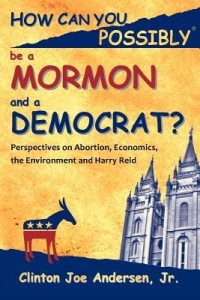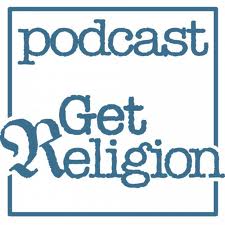Last week we looked at the story about Sen. Majority Leader Harry Reid saying Mitt Romney was a bad Mormon. A reporter asked me if Mormons think Harry Reid is a bad Mormon. I’m not Mormon but I asked a few friends who are and even the ones who really loathe his politics were dismissive of the question. One told me that she’d worshiped in Reid’s ward and that nobody seemed to make a big deal about it.
And so I found this Washington Post story about where Romney will worship if he’s elected President to be fun. It turned out that the Obama family never picked a congregation to join in Washington, D.C. But back when Barack Obama was running for office, there were quite a few stories discussing which church he might join should he be elected president.
In Mormon practice, you pretty much just go to the ward you’re assigned to based on your address. And if you live at 1600 Pennsylvania Avenue, well:
If Mitt Romney wins the presidency, one decision about life in Washington would be made for him: His church. Mormonism mandates that followers attend their assigned local congregation, called a “ward,” and folks at the Third Ward on 16th Street NW are already revved up with excitement.
Well, kind of.
They’re mostly Democrats, including the sort of Obama supporters Romney was secretly videotaped disparaging in his now-notorious remark about “the 47 percent” of Americans who don’t pay federal taxes.
But the Third Ward congregants don’t seem inclined to hold a grudge.
“I hope he doesn’t end up making that move [to the White House], but if he does, I’d welcome him with open arms,” said Corban Tillemann-Dick, 26, who works phone banks for President Obama’s reelection.
A real live Tillemann-Dick in the wild? I love it! That family is rather well-known where I’m from in Colorado. The patriarch was an inventor and the matriarch is the daughter of Rep. Tom Lantos, a Holocaust survivor. Their 11 kids had awesome Colorado names such as Charity Sunshine, Liberty Belle and Kimber Rainbow. They’re vegetarians and friends with Dennis Kucinich and what not.
Anyway, the story includes some nice Mormon-specific angles, such as that Tillemann-Dick hopes to become Romney’s home teacher should he be elected. The reporter says this ward is atypical:
A president in the pews would be dramatic, but the D.C. Third Ward, as it’s called, is used to drama. More ethnically and economically diverse than the typical Mormon ward, its roughly 200 congregants are drawn largely from Northeast Washington and have included deported immigrants, a teen shot dead in gang violence, refugees from African wars and youth who depend on the church for meals, tutoring for class and support to pay for Boy Scout camp.
“The standard ward is all middle class, and there is no one you can help. If you want to serve someone or help someone out, there are always people here you can help,” said Kevin Linzau, 51, a telephone systems programmer who lives in the Brookland neighborhood where he grew up.
I realize this is a quote from Linzau, but it’s obviously untrue. And not just because there’s not a place on earth that doesn’t include folks who need help. As if Washington, D.C., is the only place with financial hardship. Heck, I know it hasn’t been reported terribly well by the NYC-DC-focused media, but there have been some rather serious economic difficulties facing any number of families across the country in recent years. And the poor, didn’t someone say something about how they’ll always be with us. I mean, my father-in-law is LDS and he works on helping the many poor and out-of-work people in his ward with finding jobs.
And in general, I did wonder if the “ZOMG! Mormon Democrats!” angle was a tad overplayed. The headline of the piece was “D.C. Third Ward Mormons would welcome Romney, even though most are Democrats” and there were lines such as this:
Although the vast majority of Mormons lean Republican, most Washingtonians lean Democrat, and the D.C. Third Ward is no exception. Congregants describe rolling their eyes when Mormon tourists who drop in for services rave about the possibility of the GOP retaking of the White House. People share jokes about the first Mormon president — a converted Barack Obama.
“People [in D.C.] for the Glenn Beck rally came in here, all excited, and we were like, ‘Oh, we still love you,’?” said Robin Lunt, an attorney who lives in Columbia Heights. “I think the Romneys would be happy in our ward and definitely welcomed, but it would be very different.”
I have absolutely no idea what party the vast majority of members of my Lutheran congregation belong to. And we certainly wouldn’t ask people for it. So my question is how we know that “most” of the people in this congregation belong to the Democratic Party. Were they surveyed? How do they know? Is this something they talk about or generally know? And no matter how it’s known, shouldn’t that be included in the story?
Anyway, the story does say that “This would hardly be the first time Romney worshiped among a diverse group of Mormons,” citing his time as bishop and stake president in Boston. I’m not entirely sure that there is a lack of diversity outside of Boston or D.C., to be honest, but I guess that’s a somewhat subjective characterization in any case.
But back to some good LDS-specific stuff:
What if for security reasons Romney didn’t join the church? What if he was excused due to being too busy? Since every Mormon is assigned a “calling” or volunteer job in their church, if he did join, what would his be?
The Romney hypothetical really tests Mormons, who are hugely proud of the fact that they have no paid clergy and a system built around equalizing the powerful with the peon. Mormonism calls for most everyone to be a home teacher and to have one, and it’s a source of great pride that politicians and chief executives teach Sunday school, tutor or serve in the nursery on Sundays. Senate Majority Leader Harry Reid (D-Nev.) is a home teacher and a leader of the men’s group at his Chevy Chase ward, said a regional church spokeswoman.
We get some intel from Debbie Marriott Harrison, spokeswoman for the stake, and learn that Romney would be interviewed for his temple recommend “a regularly updated credential … in order to go to Mormon temples for marriages and baptisms for the dead” from “Robert Nelson, a jolly, 56-year-old IT manager who is the ward’s bishop.”
What a great idea for a story. Perfect for the Post and with some nice color about the ward.














